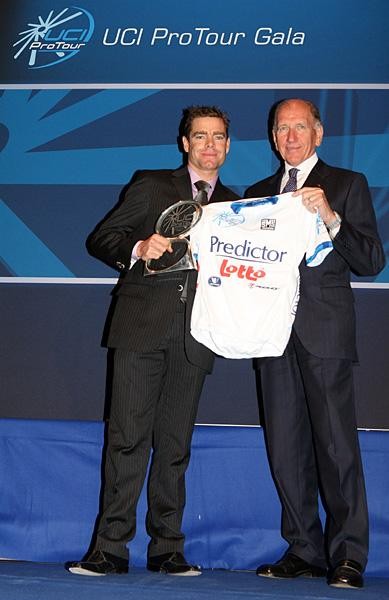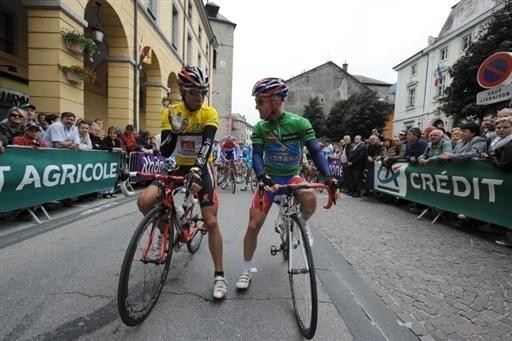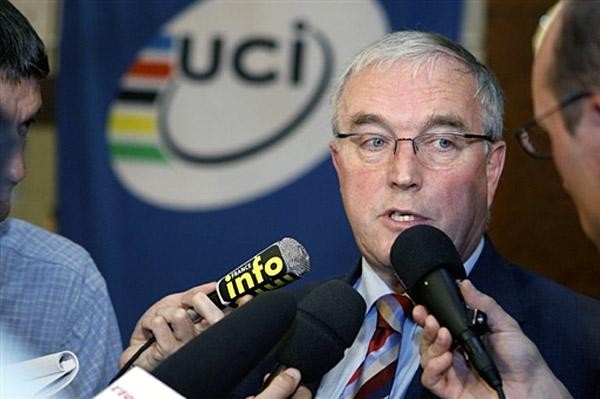Sport responds to ProTour meltdown
The question hanging over the fate of cycling's highest echelon has been answered: the UCI ProTour...



News feature, July 16, 2008
The question hanging over the fate of cycling's highest echelon has been answered: the UCI ProTour is most likely in its final year. While the 17 ProTour teams announcing they will not re-new their licences in 2009 effectively kills off the ProTour concept, it leaves those within the sport with an even bigger questions.
"Who is going to replace the ProTour, and decide the calendar, the rules?," Dauphiné Libéré race director Thierry Cazeneuve asked AFP. "Who will make the decisions and will they have backing?"
Cazeneuve's questions are valid at a time when smaller race organizers are the most exposed to the consequences of the Union Cycliste Internationale Vs. Grand Tour organizers war. Unlike the main players - UCI and the Grand Tour organisers - and even the teams, which have now exercised their position of power, smaller race organizers are incredibly exposed to developments such as these. It's a situation that has several worried about the future, while others feel it will work itself out.
"I still believe that no matter what happens the Tour Down Under will remain as part of the elite of events with the UCI," Tour Down Under director Mike Turtur told ABC Radio. "If that is the case, then that's what we always wanted to achieve for the race, to be part of the elite program of events."
A grim outlook or blessing in disguise?
Tour of Romandie's Richard Chassot wasn't so upbeat in an interview with the BCC. Chassot mirrored some of Cazeneuve's concerns regarding the sport's future direction and even questioned if there is a future for events like his own.
Get The Leadout Newsletter
The latest race content, interviews, features, reviews and expert buying guides, direct to your inbox!
"It's bad news for cycling and teams who will have to reduce their staff," said Chassot. "If the three big Tour organisers share the cake between them, they have enough races without us. We might as well die."
While the battle has been waged for years, it's only early days in the most recent developments. The unity displayed by the sport's top teams in yesterday's decision could lead to a long-term solution, according to Silence-Lotto team manager Marc Sergeant.
"The Pro Tour is a great idea in principal, with the best teams in the best races in the world," said Sergeant. "But when there's a war going on, you have to choose a side. The teams' strength lies in their unity.
"Now it's up to others to come to the table and talk," he added. "There were some good things in the Pro Tour, but where is it leading to if the Giro, Tour and Vuelta are not even part of the series?"
One thing that seems certain is that come year's end the ProTour - at least in name - is looking likely to come to an end. "It will spell the end of the ProTour," Cazeneuve said. "It simply makes no sense for an organizer to have a license if there are no ProTour teams coming."
Cofidis team manager Eric Boyer, who is also head of the International Association of Professional Cyclist Groups, echoed Cazeneuve's predictions. "I indeed think that the ProTour won't exist anymore," he said.
UCI could see it coming
While UCI president Pat McQuaid admitted the latest turn of events wasn't unforeseen, the Irishman still feels that ASO is attempting to derail his organization and possibly create a rival federation. That position would likely need to change if Sergeant's predictions of constructive meetings to map a new path for professional cycling are to come to fruition.
The friction between the sports governing bodies came about in 2005 when it launched its ProTour ambition. Since then the UCI has galvanised the three powerful owners of the world's Grand Tours - the Giro d'Italia, the Tour de France and Vuelta a Espana - in opposition to its ProTour plans, with TV rights the stumbling block.
During the period that has followed there has been a truce called on numerous occasions, but each were short lived. The situation entered a new level earlier this year when ASO announced it would run the world's largest bike race, the Tour de France, under the French Cycling Federation's governance, rather than that of the international body.
With the situation between UCI and the Grand Tour organizers now escalated to a new level following the teams' announcement, the coming days will be telling of what the sport's future holds.